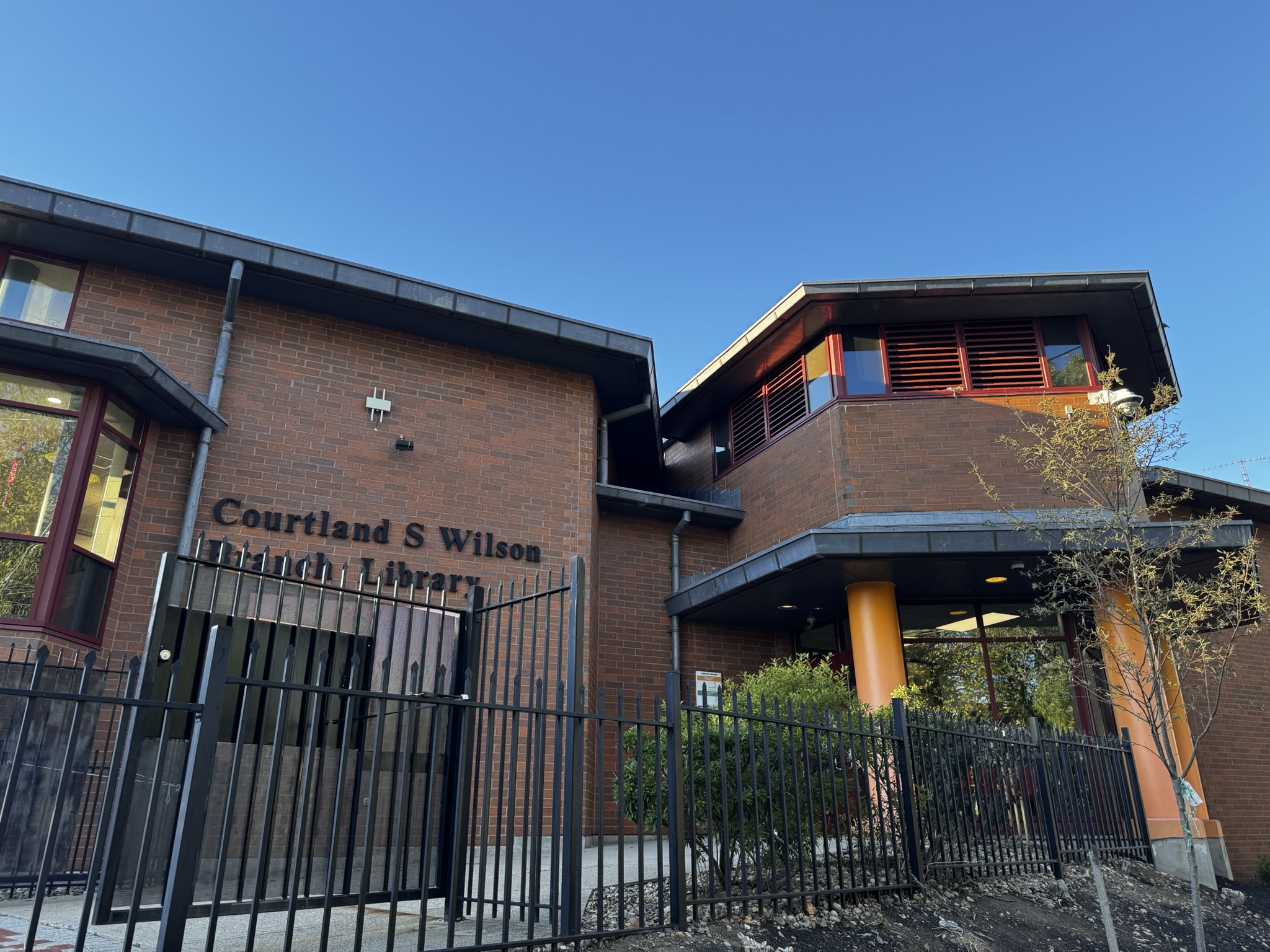Local chapter of once-national food advocacy organization holds steady
New Haven is home to the last chapter of Witness to Hunger, eight years after it had sites across six states. It has received money from the Yale Hunger and Homelessness Action Project, which is limited this year to one fundraising fast through Yale Hospitality.

Jerry Gao, Contributing Photographer
A hunger advocacy organization boasted sites across six states in 2017. Now, the New Haven chapter is its only one left.
Researchers at Drexel University’s Center for Hunger-Free Communities launched Witnesses to Hunger in Philadelphia in 2008. According to the center’s website, the project started as a “a research and advocacy project partnering with the real experts on hunger—mothers and caregivers of young children who have experienced hunger and poverty.”
Over the next decade, the project grew. In the 2010s, the organization set up exhibits showcasing its advocacy work and chapters in Boston, Baltimore, New Haven, Martha’s Vineyard, Rhode Island, Washington, D.C., and Camden, N.J., as well as one covering Pennsylvania outside of Philadelphia. By 2017, according to a report published by the Drexel University research center, Witnesses to Hunger had 80 members in total across its chapters.
But by 2020, per the program’s website, only the New Haven and Boston chapters remained. Now, the only operational chapter is in New Haven.
The News was unable to reach organizers for Witnesses to Hunger’s former chapters for clarification about their closures.
Kimberly Hart, the Witnesses to Hunger site leader in New Haven, said she set up the city chapter started operations in January 2018.
Susan Harris, an organizer for Witnesses to Hunger in charge of managing operations, told the News that the program now collaborates with other local hunger organizations and food pantries. Through these partnerships, the city chapter distributes groceries to families during school breaks, serves monthly meals through its “Dinner for a Dollar” project and promotes the city’s summer meals program to children.
When asked about why the other chapters shut down, Harris said the decline may be due to “a lack of interest and a lack of money” from Drexel University.
“As the program shut down, there was a little piece of money left, which they gave to us being the last chapter, but that was about three years ago, towards the end of COVID,” Harris said. “So that money has dwindled. We don’t have any income coming in.”
A spokesperson for Drexel University did not respond to the News’ emailed request for comment.
Harris added that the chapter has secured small grants for projects but doesn’t have a consistent income. She also noted that the chapter is part of the Greater New Haven Coordinated Food Assistance Network, a collective of New Haven hunger activist organizations which won a $345,000 grant from the city in May. Harris said about $140,000 of the funds will go to school break groceries.
“This is the first time the city of New Haven has ever endorsed any food assistance programs to that magnitude,” Harris said.
In response to the decline in funding from Drexel, Hart and Harris said the New Haven chapter decreased its benefits for members during its monthly meetings. According to the organizers, the 30 volunteers, who help distribute food for the city chapter, are paid $15 stipends each meeting, compared to $25 previously.
Last month, Yale Hospitality told organizers of the Yale Hunger and Homelessness Action Project, or YHHAP, that the University will only be willing to host the fast once this year, down from twice in previous years. Students will also only be able to donate dining points to the fast, replacing the previous model of donating meal swipes. The University then donates the proceeds from the fast to local hunger advocacy groups via YHHAP.
According to Billy Bromage, assistant clinical professor of psychiatry at the School of Medicine and an organizer for Witnesses to Hunger, the chapter received $4,950 from the 2024 fall fast.
Though Harris said she was pleasantly surprised by last year’s YHHAP donation, she does not think the changes to the event’s scheduling will threaten Witnesses to Hunger’s operations.
“Money is always appreciated, but it’s not something that we rely on,” Harris said of the donations the chapter received through the fast. “I didn’t know it was coming, so it was wonderful to receive. But it’s not something that we depend on as a revenue source.”
Harris said that the organization does not have enough resources to consider returning to other states.
Yale students launched YHHAP in 1974.
Interested in getting more news about New Haven? Join our newsletter!







